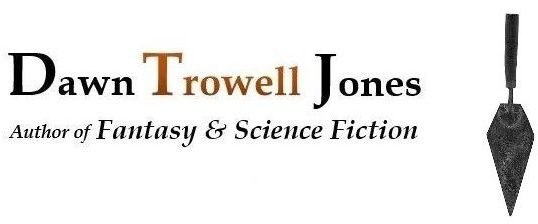 Across western society, we have sensed for a long time that the emotional centers of ourselves are lacking an outlet and as a result are under-developing, and it is a shame. So often, when we try to make up for this deficit, an ache in our souls, we look for the sort of shortcuts the late Issac Asimov (1920-1992) spoke of here (which I recently stumbled across), and we approach gratification with the same clinical discipline we’ve been pursuing everything else. We still don’t know how to sit quietly and humbly in the world and listen. The world is an organism and it has a voice we’ve chosen to ignore. That is the price paid for placing reason – which can be skewed – above obvious suffering and need. And beauty.
Across western society, we have sensed for a long time that the emotional centers of ourselves are lacking an outlet and as a result are under-developing, and it is a shame. So often, when we try to make up for this deficit, an ache in our souls, we look for the sort of shortcuts the late Issac Asimov (1920-1992) spoke of here (which I recently stumbled across), and we approach gratification with the same clinical discipline we’ve been pursuing everything else. We still don’t know how to sit quietly and humbly in the world and listen. The world is an organism and it has a voice we’ve chosen to ignore. That is the price paid for placing reason – which can be skewed – above obvious suffering and need. And beauty.
It bothers me that Asimov placed science on so high a pedestal. Science is a system of analysis, a way of understanding the world, and no more. I approve of a pedestal, just not one so high. We do amazing things with science, amazing, learn so much about the universe and ourselves following its method of probing, through observation and theory, but any information obtained through its use is irrelevant without the perceiver. That’s us. Some cosmologists posit that reality isn’t even fixed on the quantum scale until it is perceived, which is obviously extremely anthropocentric. But they are in the minority. Most believe the physical world began and continues with or without us, so with that in mind, the entire endeavor to understand anything depends on us humans being human.
I’ve observed in the news and other media this tendency to disregard obvious information in favor of a mystery. An issue worth mentioning: when a culture’s mission is problem solving, there may be a tendency to find and even create problems instead of celebrating the beauty of the world as it exists – in both its inner and outer manifestations. If we’d celebrated both, maybe we wouldn’t have trashed the place with such abandon – or continue to do so.
 So you can see I’m not against science. I’m against skewed perspectives.
So you can see I’m not against science. I’m against skewed perspectives.
Asimov wanted to carve out science as a haven for us. Science as a process, yes, I can see the appeal. His interview is like a breath of fresh air. But truly, what is the point of science if not to satisfy people in some way, to further understanding and accomplish feats that please people. Scientists themselves are people. Science as a process has no meaning outside of the context of society, and so the softer varieties of science, which is to say, the sciences that look into the human mind, our need for faith, and our value systems – sociology, psychology, philosophy, history, civics, and ethics – indeed undergird the whole enterprise. People direct science towards understandings they favor and, sadly, often quash what’s inconvenient at the time. Our climate crisis is a major case in point. So are our social crises.
 There will always be people who seek to satisfy their emotional needs in destructive ways when they have no respectable cushion or outlet, or are forced to discount their feelings, especially if never taught how to respect the boundaries of other people and other forms of life. This way lies quicksand. Too many people do not know how to weather frustration and work towards the long goal. Their emotions cloud their reason. They have no crutch that fits them and will grasp at any crutch that feels good, no matter how fleeting. It is their compulsion to burn everything down, like throwing up their hands to say, “I don’t understand what’s going on here so I reject the whole thing, and you must reject it, too!” This is certainly an irrational position. What makes these people think they know how to build better out of chaos than out of a structure that’s already there? Or are they just hoping someone else will do it for them?
There will always be people who seek to satisfy their emotional needs in destructive ways when they have no respectable cushion or outlet, or are forced to discount their feelings, especially if never taught how to respect the boundaries of other people and other forms of life. This way lies quicksand. Too many people do not know how to weather frustration and work towards the long goal. Their emotions cloud their reason. They have no crutch that fits them and will grasp at any crutch that feels good, no matter how fleeting. It is their compulsion to burn everything down, like throwing up their hands to say, “I don’t understand what’s going on here so I reject the whole thing, and you must reject it, too!” This is certainly an irrational position. What makes these people think they know how to build better out of chaos than out of a structure that’s already there? Or are they just hoping someone else will do it for them?
Here’s a thing that may interest you. It took me a while to learn how to read like a lawyer, and it took me almost as long to unlearn how to read like a lawyer. Fresh out of law school, I got zero pleasure from reading fiction. I read quickly for relevance alone and missed out on all the poetry, the squiggles, the messiness that is life as expressed in the art of storytelling. And this made me so profoundly sad I didn’t know what to do with myself.
Though Asimov’s point about people seeking cheap satisfaction stands, he was still belittling a real psychological need to look where one is told not to look. When I let go of reading to fit an agenda, whole worlds opened up. In my opinion, science at its most free is science for science’s sake.
I believe Asimov asked too much of the average human, that one should be purely rational. As much as he would like to model this rationality for us, he was not an average person by any stretch of the imagination.
We tend to repeat ourselves when nobody listens. We tend to repeat words, statements, and even whole narratives—even to ourselves—when we don’t feel heard, and as such, we may have the tendency to overstate matters. I get the sense that Asimov, clearly a passionate man, did not feel heard, and this may have forced him to take an extreme position. Not uncommon, it seems. Not at all uncommon.

Pingback: A Quick Addition to My Last Post: The AI Angle – Dawn Trowell Jones